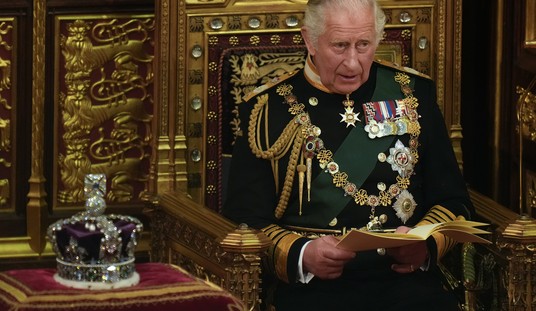But what exactly was the mission? Was it to expose an overreaching surveillance state and force accountability onto it? Or was it to cripple American intelligence and diplomacy? Thanks to the scope of the cache that Edward Snowden took and then released from the NSA and its British counterpart GCHQ, plenty of evidence can be cited for either conclusion, and will fuel debate for decades.
That, Snowden told Barton Gellman of the Washington Post, was the mission:
Snowden is an orderly thinker, with an engineer’s approach to problem-solving. He had come to believe that a dangerous machine of mass surveillance was growing unchecked. Closed-door oversight by Congress and the Foreign Intelligence Surveillance Court was a “graveyard of judgment,” he said, manipulated by the agency it was supposed to keep in check. Classification rules erected walls to prevent public debate.
Toppling those walls would be a spectacular act of transgression against the norms that prevailed inside them. Someone would have to bypass security, extract the secrets, make undetected contact with journalists and provide them with enough proof to tell the stories.
The NSA’s business is “information dominance,” the use of other people’s secrets to shape events. At 29, Snowden upended the agency on its own turf.
“You recognize that you’re going in blind, that there’s no model,” Snowden said, acknowledging that he had no way to know whether the public would share his views.
“But when you weigh that against the alternative, which is not to act,” he said, “you realize that some analysis is better than no analysis. Because even if your analysis proves to be wrong, the marketplace of ideas will bear that out. If you look at it from an engineering perspective, an iterative perspective, it’s clear that you have to try something rather than do nothing.”
By his own terms, Snowden succeeded beyond plausible ambition.
That much, at least, is true. However, as I’ve noted a few times in writing about Snowden, that mission wasn’t his to accomplish, at least not in the manner in which Snowden acted. His supporters claim that the actual avenues of legitimate whistleblowing are so totally corrupt that Snowden had no other choice but to expose highly-classified data through the media, but that’s a pretty self-serving argument for those supporters, most of whom are in the media.
Interestingly, Snowden doesn’t spend much time defending that choice, at least not in Gellman’s profile. Snowden talks a lot about discussing the matter with colleagues, but doesn’t make much of a claim of having tried the legitimate avenues of whistleblowing first, other than what appears to be a single instance of going to his direct superiors. There is no mention of other avenues, which includes as a last resort going to Congress with evidence of wrongdoing. (The NSA denies that Snowden even raised the issue, a claim which Gellman includes.)
Snowden does address this issue, although in the context of answering another criticism:
“That whole question — who elected you? — inverts the model,” he said. “They elected me. The overseers.”
He named the chairmen of the Senate and House intelligence committees.
“Dianne Feinstein elected me when she asked softball questions” in committee hearings, he said. “Mike Rogers elected me when he kept these programs hidden. . . . The FISA court elected me when they decided to legislate from the bench on things that were far beyond the mandate of what that court was ever intended to do. The system failed comprehensively, and each level of oversight, each level of responsibility that should have addressed this, abdicated their responsibility.”
“It wasn’t that they put it on me as an individual — that I’m uniquely qualified, an angel descending from the heavens — as that they put it on someone, somewhere,” he said. “You have the capability, and you realize every other [person] sitting around the table has the same capability but they don’t do it. So somebody has to be the first.”
Feinstein and Rogers aren’t the only two members of Congress, though. Senator Ron Wyden has fought for years to get the NSA under control, for instance; why not contact Wyden with the information that Wyden clearly wanted? Wyden isn’t alone, either. This sounds more like a retroactive rationalization, a claim that Snowden made without ever testing its legitimacy.
What would going through channels have done for this debate? Snowden could have done that while still fleeing the country to protect himself, and perhaps even could have accomplished the latter with a little less risk. That would have helped control the information that got out in order to minimize diplomatic damage by shielding legitimate intelligence operations. If that still didn’t work to expose the abuses, then Snowden still would have had Plan B, and we would have had a test of whether anyone in Congress was willing to take on the NSA and the intelligence community in a responsible manner.
We’ve discussed Snowden for months, and now he’s had his say in the matter directly. It’s worth reading in its entirety. How do readers see Snowden now? Take the poll:








Join the conversation as a VIP Member